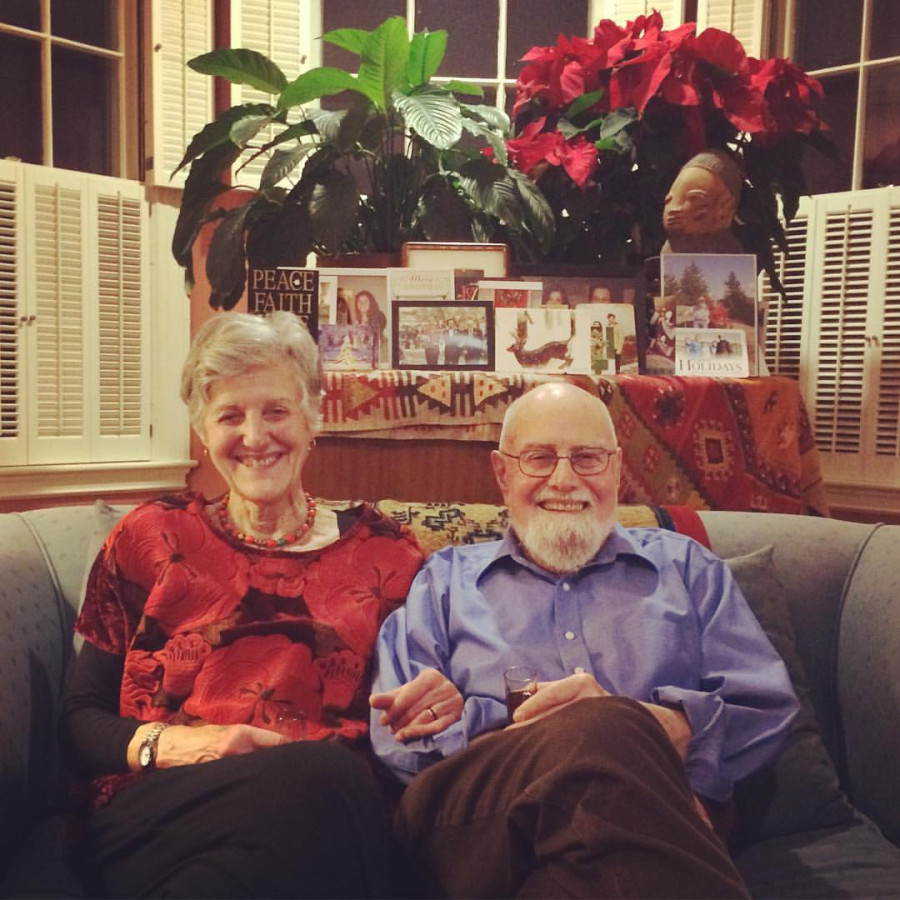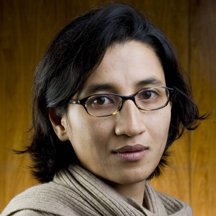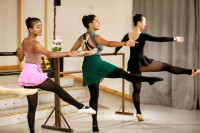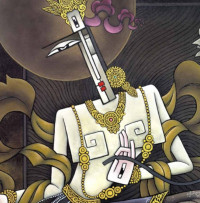Culture & Lifestyle
Sarah and Robert LeVine: A legacy of curiosity and compassion
Sarah and Bob met during a stint in Nigeria. They co-authored books on early childhood development, drawing on research in Kenya, Mexico, Zambia and Nepal.
Mallika Shakya
The fact that I received the news of my friend Sarah LeVine’s passing away just when she had been on my mind those last few days meant a lot, confirming a friendship that spanned 25 years. I was happily immersed in my Scottish student life in 1998 when an invitation from a family acquaintance in Oxford led to our first meeting. On behalf of my host, Sarah had come to pick me up from the station. It was a small act of thoughtfulness, and her friends and family will remember Sarah for the genuine care she wholeheartedly provided to those around her. I learned that Sarah had taken a ‘side trip’ to Rangoon while she was in Kathmandu to meet Aung San Suu Kyi, still under house arrest. That evening, Sarah gave Michael Aris, Suu Kyi’s husband, the photos she had clicked of her. Aris was a distinguished presence at this otherwise homey dinner. To make me feel at ease, perhaps, he recalled how Suu Kyi stayed in my aunt’s nunnery in Kathmandu with their two young boys as he went to the mountains.
I could sense the ordeal weighing him down—the Burmese dictatorial regime had banned his entry and refused an exit permit for Suu Kyi to visit him in the UK. There was something eerie about giving and taking these photos, and I thought I would write an email to Aris to extend my solidarity. Somewhat habitually, however, I procrastinated even though I absolutely meant to finish it and send it, and then suddenly, I saw his obituary in the TIME magazine and knew it was too late.
During the next two-and-half decades, Sarah grew into a friend, a mentor, a confidante and a great inspiration. My understanding of who she was as a person would keep evolving as our worlds crisscrossed over the coming years. I soon returned to the UK to join my PhD where we overlapped a few times, but we met more often once I moved to Washington DC to join the World Bank. Sarah and her husband, Bob, were in Boston, and this is where our conversations flowed more spontaneously. I was keen to explore the West, and Sarah was among the few who understood my quest very well. Her anthropological approach, not careerist but genuinely curious and compassionate, showed me the possibility of respectfully exploring a worldview that is not yours.
Born in 1940 and educated in the UK, it was during a stint in Nigeria that Sarah and Bob met. The two became an inseparable anthropological team in Harvard University’s School of Education, who prolifically co-authored books and research papers on early childhood development, drawing on their ethnographic work in Kenya, Mexico, Zambia and Nepal. They were both eager to learn from the civilisations around them and embodied the most fundamental aspect of knowledge: it comes alive only when it is reciprocal. Indeed, there is something very Maussian at work here: You can extract data and information from those who benefit from associating with you—ethnographically or statistically—but the genuine process of comprehending a society requires letting go of the barriers that separate your world from theirs.
Over the years, I stopped seeing Sarah as a foreigner or a data seeker; she was a very open-minded intellectual who earnestly participated in what she empirically observed. Theirs was among the few homes where I was received both as an ethnographic messenger and a scholar with my worldview. She made me interested in the world’s eclecticism and its inherent paradoxes, and she was my unfiltered guide when I had curiosities about English aristocracy, ranging topics from fox hunting and ‘finishing schools’ to discussions about slave trade reparations and the inheritance of British elite estates.
Sarah and Bob moved effortlessly in and out of the spheres of international development and anthropology just as they switched back and forth between their ethnographic sites in Africa, Latin America and Asia. Perhaps this explains why they never came across to me as gatekeepers of fields or disciplines, nor were they caught in blinkers of exotica or methodological nationalism. Their book ‘Literacy and Mothering: How Women’s Schooling Changes the Lives of the World’s Children’ (2012) was just out when they visited South Africa while I was teaching there. I was intrigued by what this book explained: Statistics have long attributed women’s schooling to infant survival, globally and especially in remote and resource-deprived locations where the quality of education is questionable, but the reasons behind these universal correlations have not been clear. This book suggested a thought-provoking anomaly connecting the two contemporary institutions at play—schools and health centres. They explained how mass schooling teaches students to navigate bureaucratic hierarchies, a skill set that proves invaluable when these individuals become mothers and must follow authoritative guidance from clinic staff on child health practices. ‘Listening’ or ‘taking advice’ involves performing a certain hierarchy of power, which seems to define a human condition that has now become the guarantor of our children’s survival.
Not many academics choose to write fun books, but Sarah and Bob went on and provoked parents in a compelling and culturally nuanced way. ‘Do Parents Matter?’ (2016) weaved anecdotes from their fifty-year study of how families work in faraway places ranging from Nigeria, Kenya and Mexico to Nepal. Written in a storytelling format, this book is a gripping read, especially for those exploring parenting beyond stereotypical families and the mega-industry of parenting toolkits and templates. Sarah’s collaborative research with Bob was as open-minded as their way of living, and this book is probably the only one credited to someone from the fraternity of Nepal anthropologists ever to have been reviewed in The New York Times, The Atlantic and Public Affairs.
Beyond her intellectual partnership with Bob, Sarah co-wrote (with David Gellner) an excellent book on the revival of Theravada Buddhism in Nepal (‘Rebuilding Buddhism: The Theravada Movement in Twentieth-Century Nepal’, 2005) told through the eyes of feminist nuns and householder women who pioneered it and whom Sarah befriended. She also set up a fund that contributed to young Buddhist nuns’ education for twenty years. Sarah was not quite a proselytised disciple, nor was she a grandstanding scholar. What Sarah might have begun somewhat experimentally later shaped my chosen path over the years: Instead of treating people simply as informants or respondents or making pedantic claims about kinship with them, she wrote fiction on the lives of the informants she liked.
Sarah used the pseudonym ‘Louisa Dawkins’ to differentiate her fictionalised worlds from anthropological ones. Her stories and novels were not written to be bourgeois bestsellers. Instead, her ethnographic fiction gave her interlocutors the individualised personalities she felt they deserved. Over the years, I have had the joy of meeting some of the characters from her works of fiction based in Asia and Africa, and as a reader, I appreciated the writer’s wish to give her informants the voice she felt they deserved. I did not anticipate at that time taking a similar approach in my own anthropological pursuits, but in retrospect, I can see how she unwittingly ignited in me an interest to engage with radical scholars such as Faye Harrison, Gayatri Spivak, Mahashweta Devi and Francis Nyamjoh who reintroduced poetics within anthropology to call for inclusivity within the discipline.
It is with a heavy heart that I share the sad news of Bob’s passing mere weeks after Sarah’s departure. Theirs was a deep bond, and they were a couple ardently devoted to each other. In penning Sarah’s obituary, I was struck with the irony that their work and life were so inextricably entwined that it is impossible to write about one without inherently involving the other. This photograph reminds me of how Sarah and Bob have always been: a stalwart anthropological duo and a loving family who were always curious, interested, engaged, and profoundly cared for the bigger world around them. Love stories of this kind are rare and certainly evoke deep emotions.




 22.12°C Kathmandu
22.12°C Kathmandu















